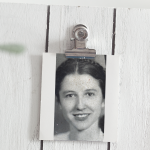”He was one of the very few persons I have ever met for whom God was real and always near.” While these were words penned by an English officer describing his encounter with martyred German pastor Dietrich Bonhoeffer, they were the words that flooded my mind and heart when I heard the unwelcome news of Dallas Willard’s death. Having had the privilege of knowing Willard and learning much from him, I can say without equivocation, “Christ was real and always near to him.”
Willard’s home-going is a deep loss to many of us who knew him and who have been shaped by his philosophical thought and theological reflection. For many of us, Dallas Willard’s writings on spiritual formation and discipleship have profoundly shaped our understanding of sanctification, spiritual discipline, and prayerful intentionality in the work of the Spirit in the life of Christians. For others of us, Willard’s writings were more provocative, less persuasive and at times disconcerting. Yet whether we knew Dallas through his writings or his person or both, his life was a compelling picture of the final apologetic of John 13:35: “By this will all men know you are my disciples, if you have love for one another.”
When I was with Dallas, he would often speak about the joy of living as an apprentice of Jesus and how that made possible both a radiant life and a radiant death. In The Divine Conspiracy, Dallas drew deeply on the biblical metaphor of death as sleep (1 Thessalonians 4:14, Acts 7:60). Reflecting on these hopeful biblical texts, Dallas wrote, “The difference is simply a matter of what we are conscious of. In fact, at ‘physical’ death we become conscious and enjoy a richness of experience we have never known before.”
I am profoundly grateful to Christ for the grace gift of knowing Dallas Willard. My longevity in pastoral ministry and the spiritual vibrancy of the gospel-centered congregation I have the privilege of shepherding is in no small part due to how Christ has used this departed servant to guide us into greater Christlikeness of life and mission. While a sense of sadness shadows me today in the loss of a friend and mentor, Willard’s radiant life and radiant death put a bounce in my step and a shout in my soul of resurrection life to come for those who are in Christ.
Facing death, Dietrich Bonhoeffer articulated resurrection hope this way: “This is the end, but for me it is the beginning of life.” The ravages of cancer ultimately had their way with Dallas Willard’s body, but May 8 was a day of glorious triumph for it was the beginning of his new life. Thank you, Dallas, for your radiant life and radiant death. You will be dearly missed by those of us left behind.
Is there enough evidence for us to believe the Gospels?
 In an age of faith deconstruction and skepticism about the Bible’s authority, it’s common to hear claims that the Gospels are unreliable propaganda. And if the Gospels are shown to be historically unreliable, the whole foundation of Christianity begins to crumble.
In an age of faith deconstruction and skepticism about the Bible’s authority, it’s common to hear claims that the Gospels are unreliable propaganda. And if the Gospels are shown to be historically unreliable, the whole foundation of Christianity begins to crumble.



































